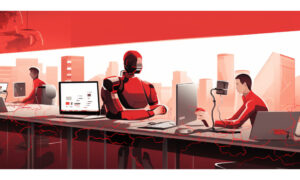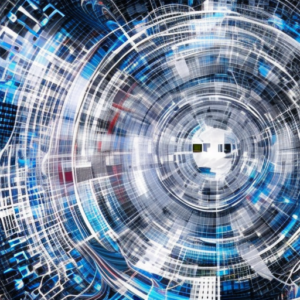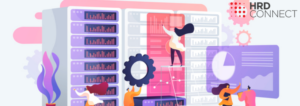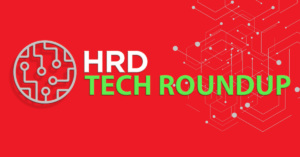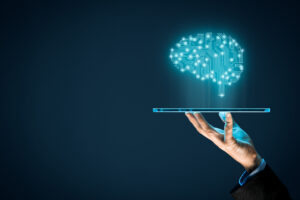The impact of AI and automation on HR and the wider business
- 4 Min Read
Technology is expanding throughout businesses at a rapid pace. Today, AI is changing the relationship between employees and managers at work. To find out more about the changes in digitalisation, HRD Connect delves deeper into the ever-growing AI influence on workforces.
- Author: Louron Pratt
- Date published: Oct 24, 2019
- Categories
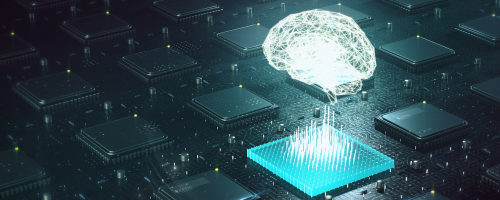
Contrary to common misconceptions about how AI will negatively impact the job landscape, there are many benefits that advancements in technology can have on businesses.
The current impact of AI at work is only just the beginning. For businesses to take advantage of these advancements, organisations must focus on simplifying and securing AI to avoid the risk of being left behind.
“The latest developments in machine learning and artificial intelligence are rapidly reaching the mainstream, resulting in a massive shift in the way people across the world interact with technology and their teams,” said Emily He, SVP, Human Capital Management Cloud Business Group, Oracle.
“The relationship between humans and machines is being redefined at work. There is no one-size-fits-all approach to manage this change”
“Organisations need to partner with HR teams to successfully implement AI at work if they are to meet the changing expectations of their teams.”
Oracle’s latest research, ‘From Fear to Enthusiasm’, found that AI is already heavily influencing businesses. 50% of workers now use some form of AI at work compared to only 32% last year. Despite misconceptions about employees being fearful of AI integration, Oracle found that 65% of employees are optimistic and excited about potentially having robot co-workers.
“Over the past two years, we’ve found that workers have become more optimistic as they’ve adopted AI in the workplace, and HR is leading the way,” continued Emily.
“The 2019 study shows that AI is redefining not only the relationship between employee and manager but also the role of a manager in an AI-driven workplace.”
“Managers will remain relevant in the future if they focus on being human and using their soft skills, leaving the technical skills and routine tasks to robots.”
Business leaders can heavily benefit from accelerated developments in AI. It can improve relationships between teams and take over basic tasks. Furthermore, AI has a significant impact on how employees interact with managers. Consequently, the traditional role of an HR department is changing.
Studies by Oracle revealed that 64% of people would trust a robot over their manager. What’s more, half have turned to robots for advice over their managers. This is a stark reminder that many roles could fluctuate as AI evolves.
“Our 2019 results reveal that forward-looking companies are already capitalising on the power of AI,” said Jeanne Meister, Founding Partner, Future Workplace.
As workers and managers leverage the power of AI in the workplace, they are beginning to see the possibility of being free of many of their routine tasks, having more time to solve critical business problems for their companies.
Continuous learning has never been more crucial if employees are to keep up with the rapid shifts in digitalisation.
Although HR leaders are the most excited about AI developments, they have an influential and vital role to play in understanding technological developments.
76% of Oracle’s study participants (and 81% of the HR leaders) have found it challenging to keep up with the pace of digital changes. Furthermore, 51% of businesses acknowledge that they do not have the current skills required to succeed in the AI age.
“AI and automation in any business area can be beneficial but it takes a high level of emotional intelligence to effectively implement these processes,” said Steve Collinson, Director of HR, Zurich UK.
“Once implemented they need to be carefully managed and monitored. It’s not as simple as just asking a robot to do something in the same way time and time again, that’s where the errors occur.”
Privacy and security concerns may grow as AI continues to influence workforces. However, with routine tasks being replaced by technology, it could create more leeway to create an effective strategy where these concerns are resolved, ensuring a smooth transition into the digital age.
The speed of technological developments is increasing, and employees are ready to embrace AI. Organisations that can move swiftly to encourage adoption will be able to drive innovation and secure their future in current markets. Nonetheless, it’s essential to recognise the risks of introducing AI into the workplace.
“Without a doubt, people are crucial to a firm’s continued success, so it’s important to invest correctly in HR technology,” said Julie Chell, Chief People Officer, Civica.
“Early adopters are now deploying ‘assistive AI’ in back-office systems helping to improve employee productivity, driving cost savings, efficiencies and improving services – but we must also acknowledge the risks.”
“Organisations need to ensure that HR and people processes are not being left behind. Investment into these technologies will ensure organisations have the systems in place to support their employees through an ‘always on’ approach, to nurture and harness the talent needed to thrive.”
While HR teams and wider workforces may continue to fluctuate, the role of HR leaders remains vital in ensuring a stable shift toward the digital landscape.



